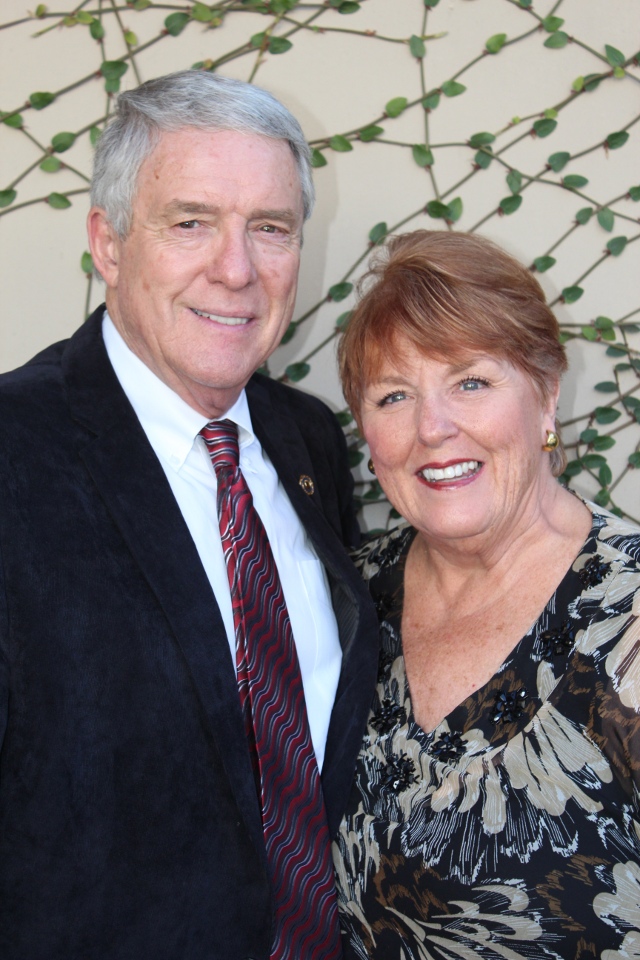Improving Neighborhoods on the Westside
Housing Project Also Provides Services
Just shy of a decade ago, residents living in the apartment complex at 524 West Canon Perdido Street feared to leave their rooms — it was, in the words of apartment resident Phil U., “a drug addicts’ and gang members’ slum.”
This blighted community drew the attention of Dr. Jon and Patty Wilson, directors of Turner Foundation, a faith-based nonprofit in Santa Barbara. The pair decided to purchase the property and, in the years following, have helped to transform the apartment into The Village, a subsidized housing unit replete with on-site tutoring, music lessons, a playground, onsite food and beverage distribution, and regular community social events, all at no cost to the residents.

A similar transformation now awaits the 45-unit apartment building on 1502 San Pasqual Street, which the Turner Foundation purchased in September of this year with the assistance of Montecito Bank & Trust and Radius Commercial Real Estate & Investments. Turner Foundation plans to gradually revive the property, deemed The Lighthouse, by first providing much-needed architectural improvements such as new staircases, new paint jobs, and, in the long-term, an open space for community gatherings.
Over time, the foundation will also implement free need-based programs such as ESL lessons, music programs, sports camps, and more. Kids Helping Kids and Everybody Dance Now are among some of the area nonprofits set to work in collaboration with The Lighthouse.
These services will come cost-free to current residents of the complex, as well as to the homeless or low-income residents who may fill vacancies. It is these services, said Jamie Dufek, director of development for the Turner Foundation, that sets the foundation’s properties apart from other low-income units.
“Our first priority is to transform where the residents live and the community that they live in,” Dufek said. “We want to transform the idea of what typical low-income housing looks and feels like.”
Programs like tutoring and music lessons, Dufek said, provide a sense of safety, community, and, above all, empowerment to families and children who otherwise may not have received such services. “Even though S.B. is this paradise, known to be a wealthier area, people forget the teens and kids that live here still face difficult choices, such as gang affiliations,” she said.
“We feel that the best way to really break the cycle is to focus on the next generation,” Dr. Wilson said. “We want to change lives.”
The Turner Foundation began in 1958 in Riverside County, when Patty Wilson’s father, Rev. Dr. Albert J. Turner, founded the Rose Garden Village there, the first federally subsidized retirement development in the country. Dr. Jon and Patty Wilson expanded Turner’s vision when they purchased The Village property in 2005. Since then, working in conjunction with Common Ground Santa Barbara — a nonprofit dedicated to identifying and housing the region’s homeless and most vulnerable residents — the foundation has worked to provide a safe harbor for people who otherwise might die on the street.
“It’s a place where people can find safety, a sense of security, and a way out of the trap of not having money to be able to afford the services in the community of Santa Barbara,” Dr. Wilson said.
This trap afflicts far more residents and workers of the Santa Barbra community than some may realize. With a median cost of $1,378 for a one-bedroom apartment, Santa Barbara housing options are slim for even those earning well above the minimum wage. Many commute daily to Santa Barbra to provide services because housing options are so difficult to come by.
“When we mention we are doing affordable housing in S.B., people think, why do that, it’s a wealthy community? The reality is, it’s a tremendous need,” Dr. Wilson said.
The Village has enabled many residents, who otherwise may have left, to stay and has replaced a fear-stricken and gang-strangled neighborhood with a vibrant community.
Formerly homeless individuals now live in apartments, and the Wilsons cite their contributions as positive and vital members of the community. The Wilsons said the tremendous costs of homelessness — between hospital visits, arrests, and rehab, a single homeless individual costs the state an average of $100,000 — gives some urgency to their model, which provides a solution to chronic housing issues.
“If other communities could partner and see what we are doing, they could really solve a lot of problems we are having across the nation,” Dr. Wilson said.
“This could be infectious. If the apartment owners in this community said, you know, we could take in a homeless person, it can do a job that nothing legislative can do,” added Patty Wilson.
In the meantime, the foundation aims to expand its services to other properties in the future over the long term. “We’re not here to take over, we are here to serve, and to serve the under-served, and however we can do that, we will,” Dr. Wilson said.



